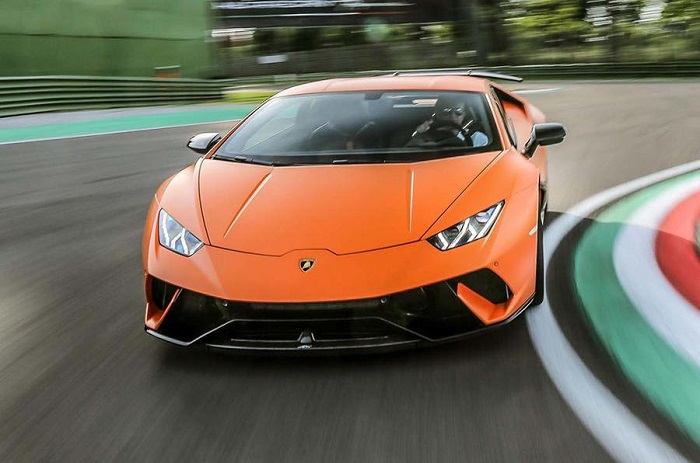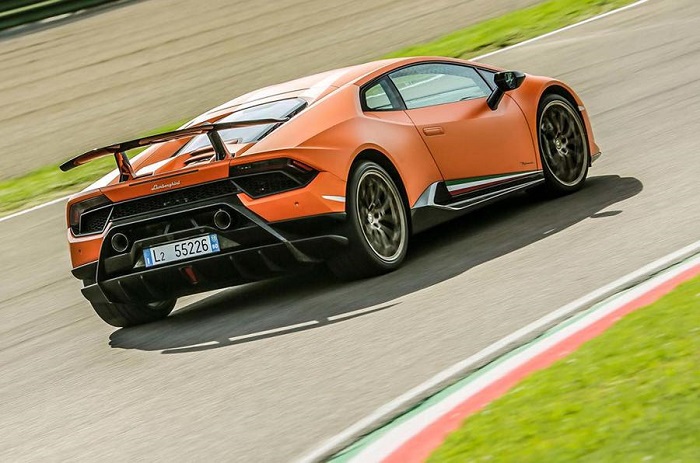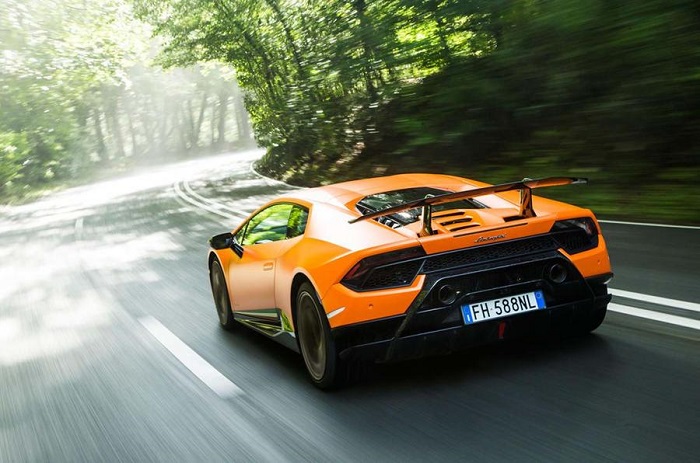Next Huracan due in 2022 will be plug-in hybrid
Lamborghini’s first hybrid sports car will use next-generation solid-state technology
Khodrocar - The Lamborghini Huracán’s successor, due in 2022, will use a radical hybrid powertrain, featuring "next-generation” battery technology to minimise weight and give it the ability to run in electric-only mode.

The Italian supercar maker, which is well known for its reluctance to move away from naturally aspirated engines, has already confirmed a hybrid powertrain will be launched in its new SUV, the Urus.
The latter will be revealed in December, but no technical details or performance figures have been released yet.
The next Aventador, due before the second-generation Huracán, will retain its naturally aspirated V12 engine, so the Huracán’s successor will be the first Lamborghini sports car to be an advanced plug-in hybrid. Talking to Autocar, Lamborghini boss Stefano Domenicali said: "The [next] Huracán – that car will need hybridisation. Hybridisation is the answer, not [full] electric.”
Referring to its current engines, Domenicali said: "There is still a lot of potential for the V12. The right approach for us is to have the V10 and V12 to suit our customers and then be ready to switch [to a hybrid] at the right moment.”
Commercial boss Federico Foschini told Autocar earlier this year that there is currently little demand for hybridisation from its customers. "When they come to Lamborghini, they are asking for the power and performance of our naturally aspirated engines,” he said. "That’s why we have already decided that the next-generation V12 will stay naturally aspirated and it is one reason why the [Aventador] remains unique.”
Although these engines remain in the mid-term plan, Lamborghini is already heavily investing in the research and development of future powertrain technology for 2022 and beyond.

Last year, it announced a partnership with the Massachusetts Institute of Technology (MIT) on a project that "intends to write an important page in the future of super-sports cars for the third millennium”. That project is likely to focus on lightweight composite materials, as well as alternative energy and battery storage techniques.
Research and development boss Maurizio Reggiani told Autocar last month that the key issues currently preventing the brand from integrating hybrid technology were focused around driving range, but he hoped to have a solution for a super-sports car within "four to five years”.
He said: "The issue today is the storage of energy. If I go to a track, I need to run all the laps that I want. But today, the problem is that if you go, you are only able to run one and a half laps [flat out].”
Reggiani said plug-in electric technology is still not effective enough for use in a supercar that can be driven at pace for long periods of time."Imagine if you went to the Nordschleife with a hybrid. It will be faster on the 0-100km/h time [than non-hybrid cars] but it will not be faster over a lap – or at least won’t be able to do more laps,” he said.
Porsche, a Volkswagen Group stablemate of Lamborghini, has been investigating the use of lighter solid-state batteries for its future performance cars and Reggiani said this is something Lamborghini is considering. However, he believes the very different character of Lamborghini supercars means integrating tech from a sister brand won’t be as simple as it has been with the Urus.
"It’s easier in our first plug-in hybrid, the Urus, because the ambition of the car in terms of packaging and weight is not so difficult,” he said. "But this is one mission. It’s not the Lamborghini super-sports car mission.”

Reggiani said Lamborghini is working with multiple industry experts, including MIT, to investigate what type of battery system can offer the best answer to the hybrid challenge.
"We have different partnerships with the most important researchers in the world because we need to scout [for future ideas],” he said. "I think the new frontier of the super-sports car will move more and more tothe hybridisation, although there are still some questions relating to the weight and the packaging of the batteries.”
Source: Autocar
Latest News


